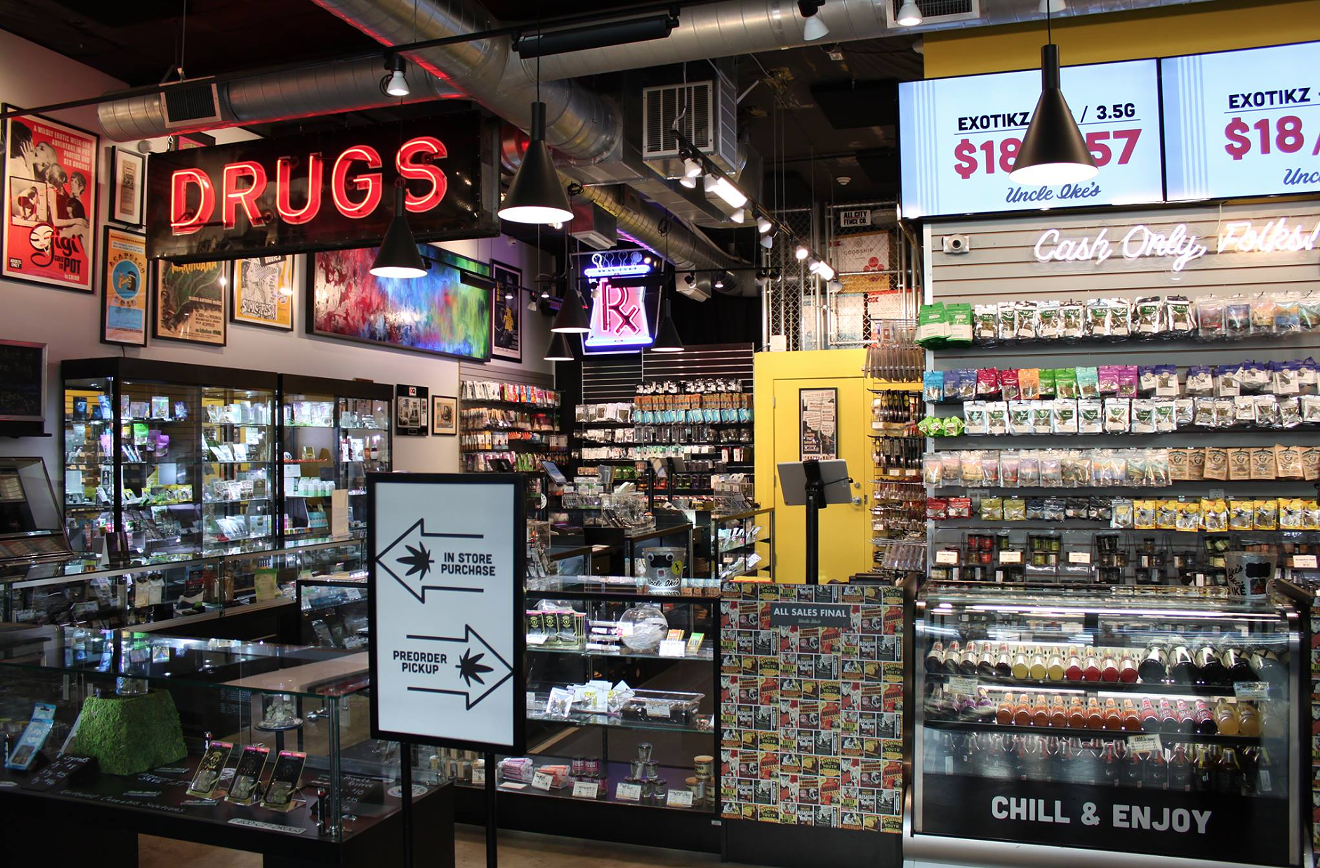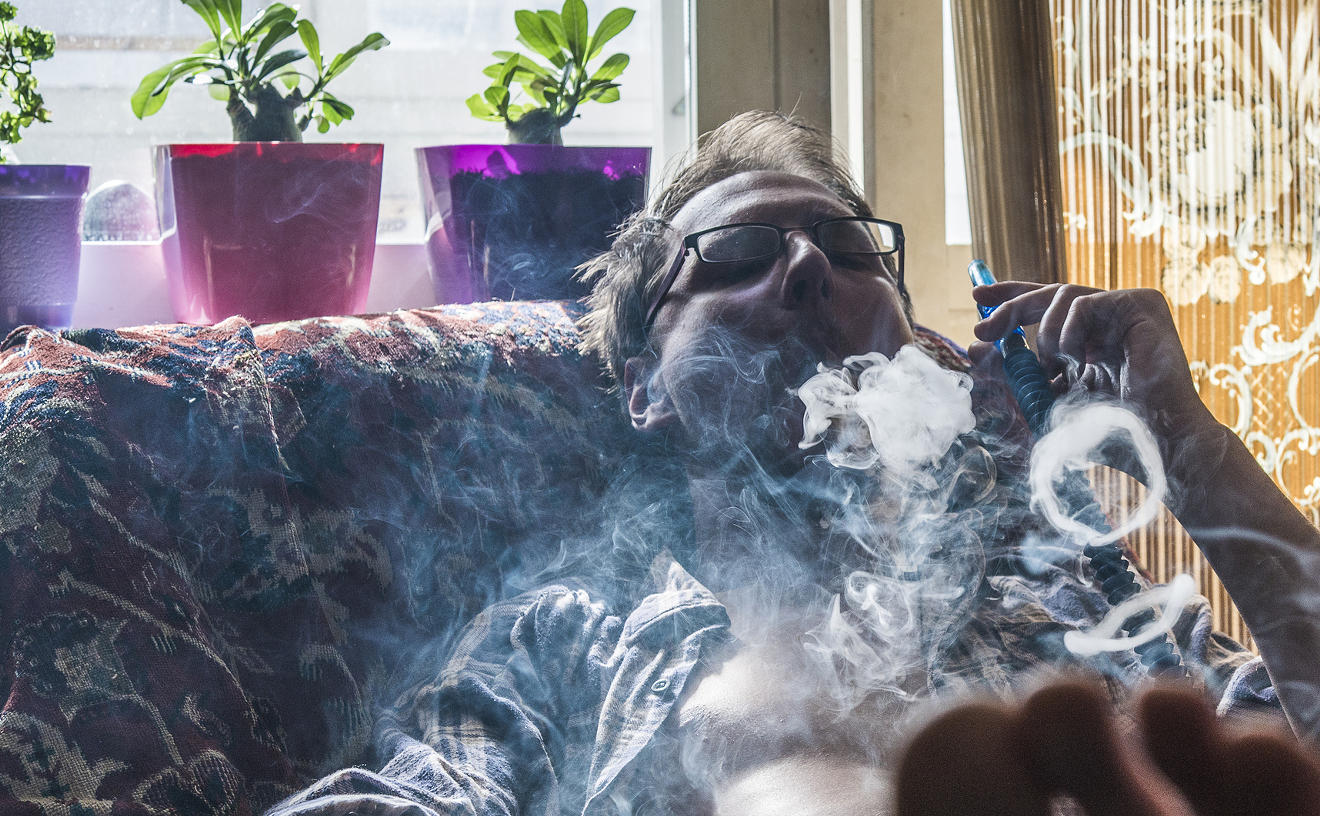Though recreational weed probably won't be approved during this legislative session, which kicked off earlier this month, Gov. Ron DeSantis has signaled he's ready to lift the state's ban on smokable medical pot. (And the state Senate last week approved the idea.) Bracy and Grieco believe their measures will at the very least serve as “message bills” meant to spark interest.
It's not too soon to start imagining what a legal, adult-use marijuana program might look like in Florida. Michigan became the tenth state to legalize recreational marijuana during last year's midterm elections, and medical marijuana is now allowed in 33 states. New Times spoke with pot entrepreneurs across the United States, who are either embarking on recreational ventures or already well established, to get a better idea of what could be in store. Here are the biggest takeaways:
Medical pot won't go anywhere. "There has not been a single state so far that has not built their adult-use infrastructure on an existing medical marijuana program," says Randy Maslow, cofounder
Launched in 2016, Florida's medical marijuana program has grown to encompass more than 80 dispensaries and over 2,000 licensed physicians for the state's nearly 200,000 active, registered patients. A recreational marijuana program wouldn't replace the existing medical one. Instead, existing medical license owners will likely be grandfathered into a recreational program, Maslow says. This will allow tax revenue to begin flowing in as quickly as possible. "Compliance is a huge part of this business, and it takes
The customer experience will change. "When medical was more widespread, it was a little more apparent that it was tailored for patients rather than the general population," says Sean Martin, manager of Uncle Ike's Glass and Goods Growers in Seattle, where recreational marijuana has been legal since 2012. "Now recreational shops have a very lax and open feel. A lot of them try to appear upscale and modern to brush off a lot of the stigma that some people still place on weed."
In medical-only dispensaries, private patient consultation areas, and the ability to reserve inventory are crucial. But with recreational pot, customers could switch if one kind were sold out. Dispensaries would cater to both types of customers, with separate areas and registers for each.
There will be "budtenders," knowledgeable staffers
There will be more product options. Although the sale of
And Florida's current range of medical vaporizer cartridges, oral cannabis tinctures, oil syringes, and topical salves will probably expand to include edibles and concentrates.
Dosages are also likely to be affected. In Washington's medical-only days, daily limits and quantities of THC per serving were very different. "Since the medical products were for patients with serious illnesses, they were allowed higher dosages and were generally allowed to get what they needed," Martin says. "Patients are still allowed some of these quantities if they have the right card, but overall it feels more like the regulations in the recreational market are set in place to keep your average person from going overboard." Washington, for example, now has a daily purchase limit of one ounce of flower and 10 milligrams of edibles.
Prices will go down. As the nation's third most populous state, Florida has a huge financial incentive to legalize recreational marijuana. Although medical marijuana sales are not taxed in Florida, states with recreational programs can add up to 20 percent in taxes to a recreational sale. For reference, Colorado earns upward of $250 million in annual revenue from its marijuana programs. With a population more than four times the size of Colorado's, Florida stands to bring in more than a billion dollars in annual taxes from the marijuana industry. That kind of volume "drives down prices for medical and adult-use customers," Maslow says. "At the end of the day, it's a safer product and it's almost always phenomenally better quality than it is in the black market."















